Ray Rice case prompted NFL changes on domestic violence, but cases continue to test policy
In the five years since the Ray Rice case changed the way the NFL responds to domestic violence, several noteworthy players have tested the personal conduct policy with varied outcomes. That policy does not require a criminal case for the league to launch its own investigation, and it sets as a baseline a six-game suspension for the first case of domestic violence.
"We must endeavor at all times to be people of high character; we must show respect for others inside and outside our workplace; and we must strive to conduct ourselves in ways that favorably reflect on ourselves, our teams, the communities we represent, and the NFL," the policy states.
Domestic violence: Red flags are easy to find in coaches’ pasts, but did NFL teams spot them?
Though the personal conduct policy applies to personnel leaguewide, it has drawn the most attention in cases of player misconduct.
Here's a look at some of the most high-profile cases and how the NFL responded:
2014 season: Ray Rice
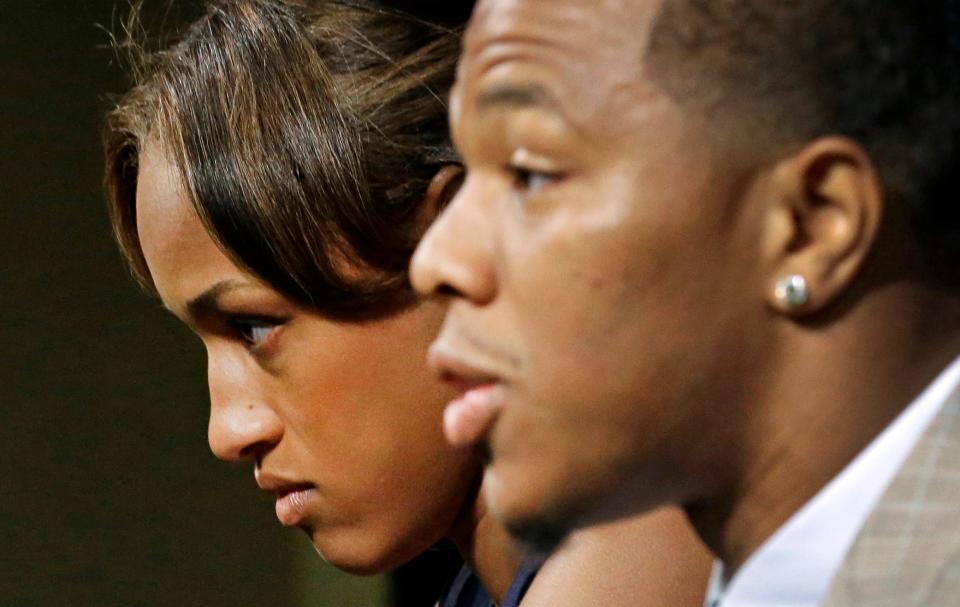
The NFL suspended Baltimore running back Ray Rice for two games following a domestic violence case in February of that year in which Rice struck his then-fiancée, Janay Palmer, in an Atlantic City, New Jersey, elevator. Rice entered a pretrial intervention program in exchange for prosecutors dropping an aggravated assault charge against him. Rice and Palmer married shortly after the incident. In the face of widespread criticism for its initial lenient punishment of Rice – who received a shorter suspension than several other players faced for drug violations – the NFL changed its policy.
Five years later: Setting the record straight on the Ray Rice video
NFL player arrests: Database tracks arrests since the year 2000
TMZ published a video showing Rice striking Palmer in the face and dragging her out of the elevator while she was unconscious, igniting a firestorm for the league. NFL Commissioner Roger Goodell suspended Rice indefinitely, and the Ravens terminated his contract.
The NFL hired former FBI director Robert S. Mueller III to lead an investigation into its handling of Rice’s suspension after the Associated Press reported that law enforcement had sent the league copies of the video of Rice punching his then-fiancée. Mueller’s investigation "found no evidence that anyone at the NFL had or saw the in-elevator video before it was publicly shown."
Rice, 32, has not played in the league since the Ravens released him.
2014 season: Ray McDonald
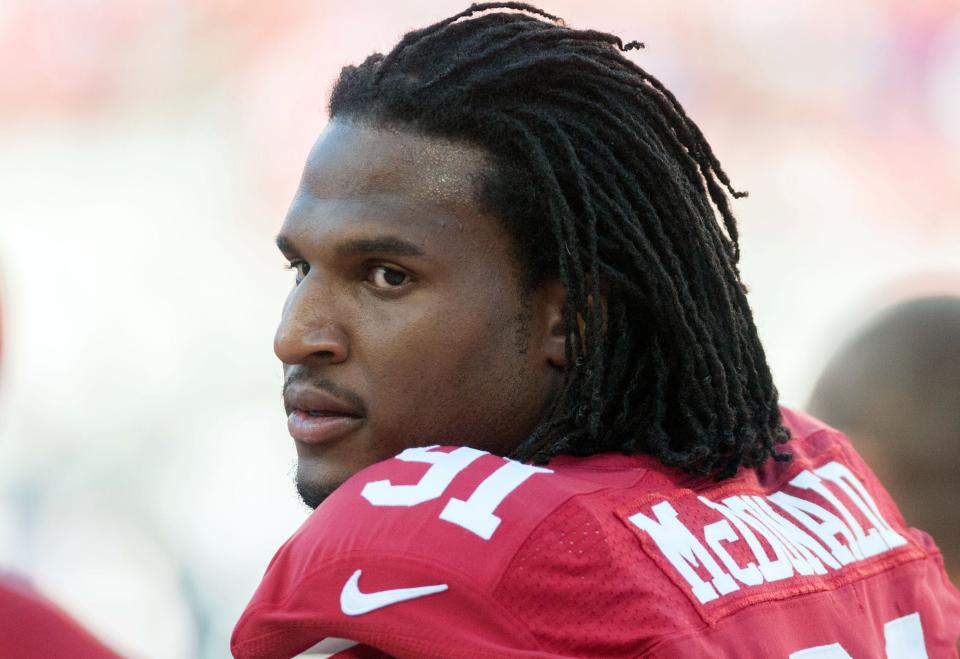
San Francisco defensive end Ray McDonald was arrested following a domestic violence incident with his then-fiancée, who San Jose, California, police said had “visible injuries.” His arrest came less than a week after the NFL announced harsher penalties for domestic violence in the wake of the Rice case. The Santa Clara district attorney declined to file charges after the woman, who was pregnant at the time of McDonald’s arrest, didn’t cooperate in the case. The NFL investigated but did not determine McDonald violated the personal conduct policy.
McDonald started 14 games for the 49ers before the team cut him in December 2014 after he was named as a suspect in a sexual assault investigation. A rape charge was later dismissed after the woman decided not to testify in the case.
Amid criticism, Chicago signed McDonald but cut him two months later after he was arrested again for domestic violence and child endangerment in May 2015. Two days later, he was arrested again for violating a restraining order. The charges were later dismissed.
The Bears released him following his 2015 arrest, and he has not played in the NFL since.
Column: Punish Bears for Ray McDonald's latest arrest
2014 season: Adrian Peterson
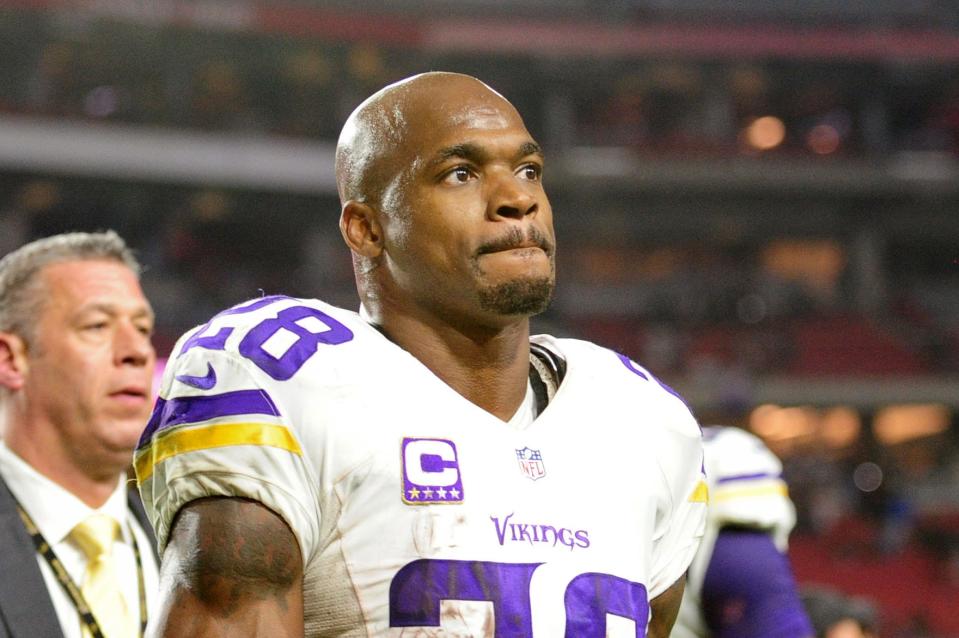
The star Minnesota running back was indicted on felony child abuse charges after using a wooden switch on his 4-year-old son. The NFL put Peterson on the commissioner’s exempt list while the case progressed, and he pleaded no contest to misdemeanor reckless assault.
In the locker room: 100% support for Adrian Peterson
The league suspended him for six games after that plea, and an arbitrator upheld the suspension after Peterson appealed. Arguing the NFL had inappropriately applied its new domestic violence policy retroactively in Peterson’s case, the NFL Players’ Association filed a lawsuit in U.S. District Court. After the judge there ruled in Peterson’s favor, a three-judge federal appellate court ruled in favor of the NFL in 2016 and affirmed that the league’s arbitrator was within his rights to uphold the league’s suspension.
2015 season: Greg Hardy
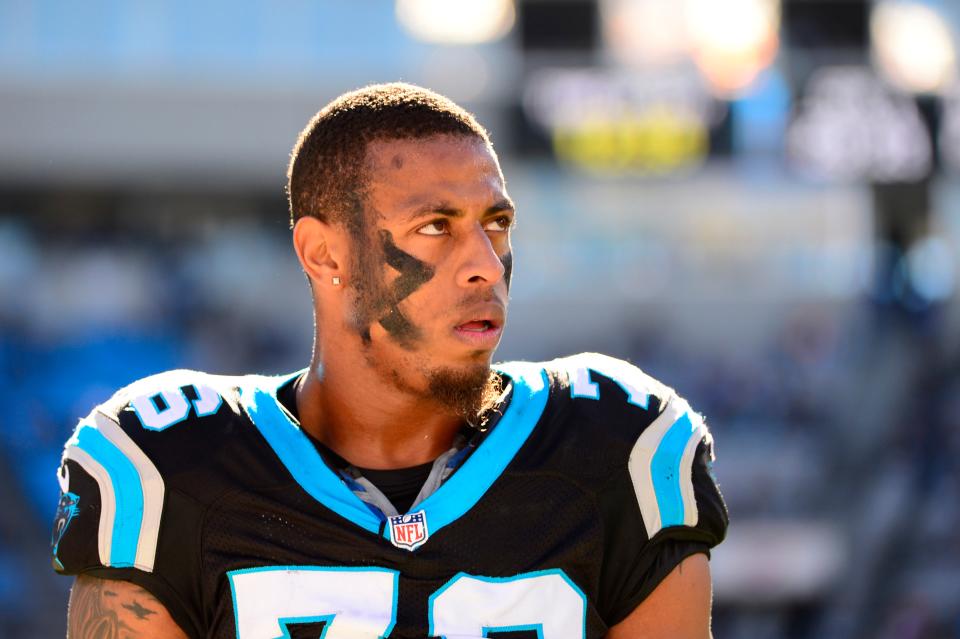
In the summer of 2014, a North Carolina judge found the Carolina defensive end guilty of assaulting a female and communicating threats. Hardy appealed and asked for a jury trial, and prosecutors later dismissed the charges when Nicole Holder, his ex-girlfriend who said Hardy assaulted her and threatened to kill her, decided not to testify.
An NFL investigation found Hardy violated the personal conduct policy during a May 2014 altercation in which he used physical force against Holder, including by causing “her to land on a futon that was covered with at least four semi-automatic rifles.”
Hardy appealed the league’s 10-game suspension, and an arbiter reduced it to four games. Carolina didn’t re-sign him, and he played for the Cowboys during the 2015 season. He hasn’t played in the league since and is currently a UFC fighter.
2016 season: Josh Brown
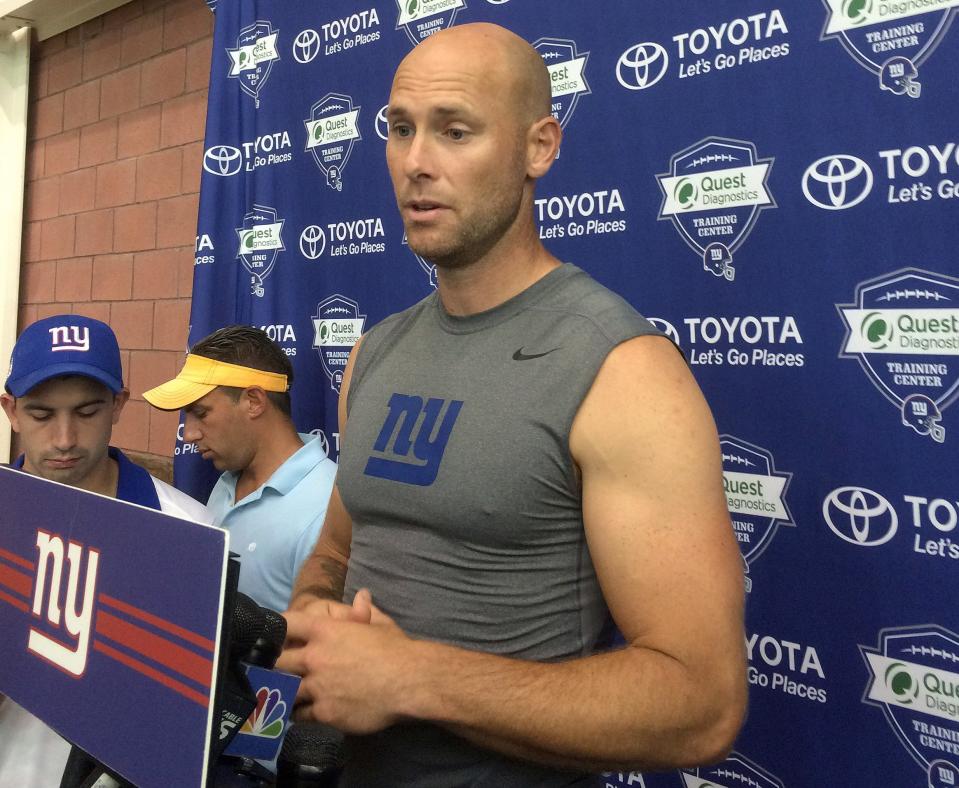
The NFL suspended Brown for one game for domestic violence following a May 2015 arrest, for which the charges were dropped within days. After that suspension, the NFL put Brown on its commissioner exempt list – essentially paid leave – when public documents in Washington state showed Brown admitted to the abuse.
Nancy Armour: Josh Brown admitted to beating wife, and NFL barely cares
Brown’s then-wife, Molly, told the King County Sheriff’s Office in 2015 that he had been physically violent with her and provided documents to law enforcement. In one letter, which Brown wrote to friends and family in 2014, Brown admitted, “I became an abuser and hurt Molly physically, emotionally and verbally.”
The Giants released the kicker after those documents were made public, and he has not played in the league since. After evaluating additional evidence, the NFL suspended Brown for six additional games in 2017 while he was a free agent.
2017 season: Ezekiel Elliott
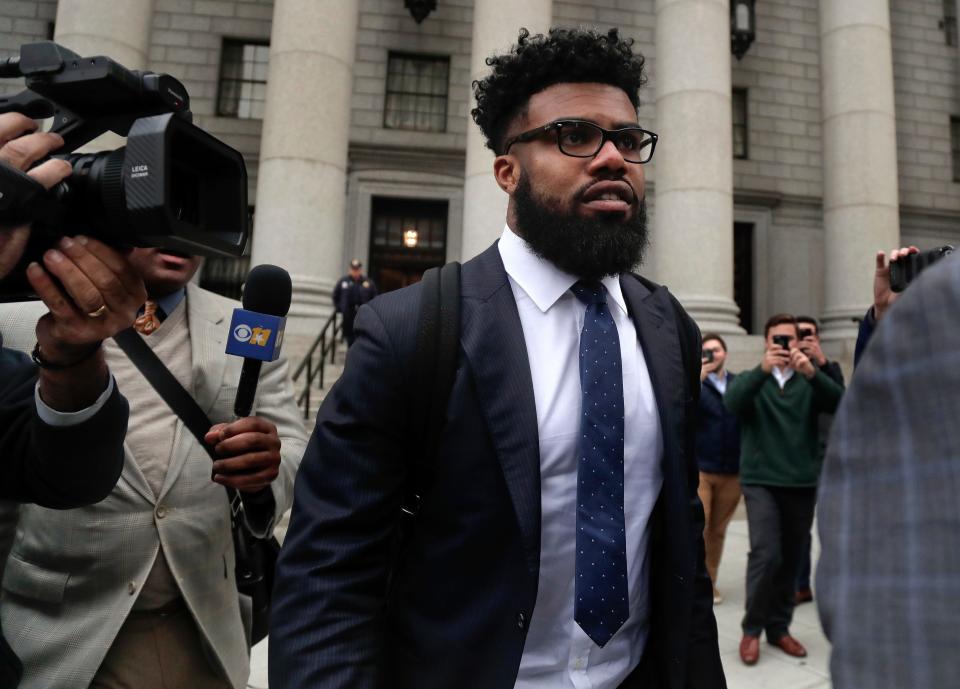
Following a year-long investigation, the NFL suspended Dallas running back Ezekiel Elliott for six games after determining he had been physically violent on multiple occasions with a woman in the summer of 2016. Though the woman reported the incidents to police, Elliott was not charged criminally.
The NFLPA challenged the suspension in federal court, and Elliott played the first half of the season after courts intervened three times to prevent the suspension from going into effect. Ultimately, the 2nd U.S. Circuit Court of Appeals denied Elliott’s request for an injunction, and he accepted his suspension in November 2017.
Elliott, who led the league in rushing in each of two full seasons he's played, held out this offseason and earlier this month signed a six-year, $90-million contract extension to make him the highest-paid running back in the NFL.
2018 season: Reuben Foster
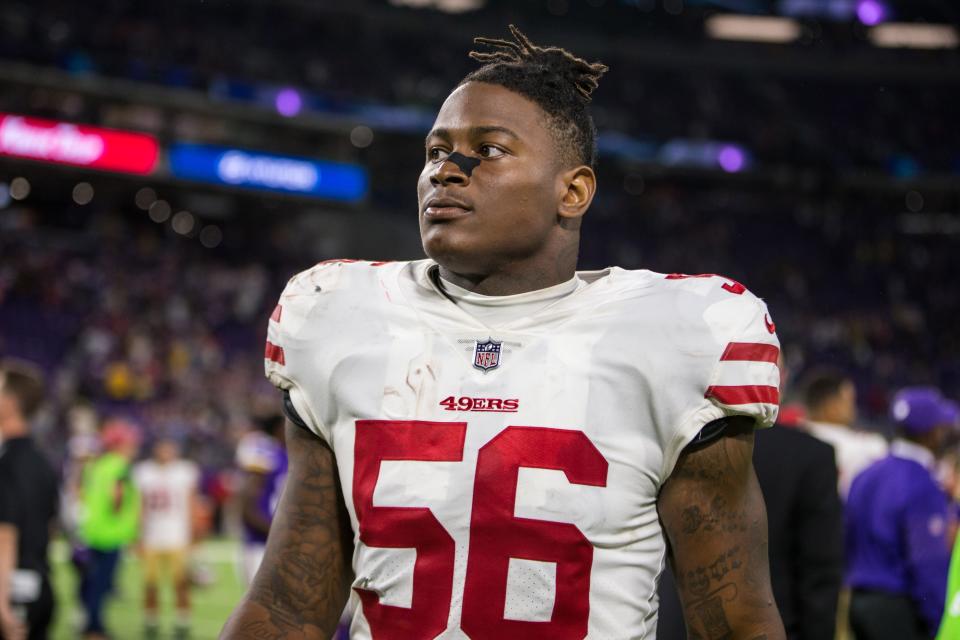
San Francisco linebacker Reuben Foster faced a domestic violence charge and three charges following his February arrest after his then-girlfriend told police he dragged her by her hair, punched her in the head several times and threw her out of the house. The woman later recanted her story, saying she sustained her injuries in a fight with another woman. The woman, Elissa Ennis, testified in court that she lied in order to extort money from Foster, and the charges were dropped.
Foster was arrested again in November after the woman told police in Tampa that Foster slapped her across the face and pushed her in the chest. The 49ers released the former first-round draft pick after his second arrest. Washington claimed him off waivers days later after team officials said they had interviewed some of Foster’s college teammates at Alabama on the team’s roster. However, team officials did not interview the woman. Prosecutors in Florida later dropped the charge against Foster.
The NFL initially placed Foster on its commissioner’s exempt list while it investigated. The league announced this spring that Foster would be fined two game checks.
Foster tore an anterior cruciate ligament in his knee in May and will miss this season.
2019 season: Tyreek Hill
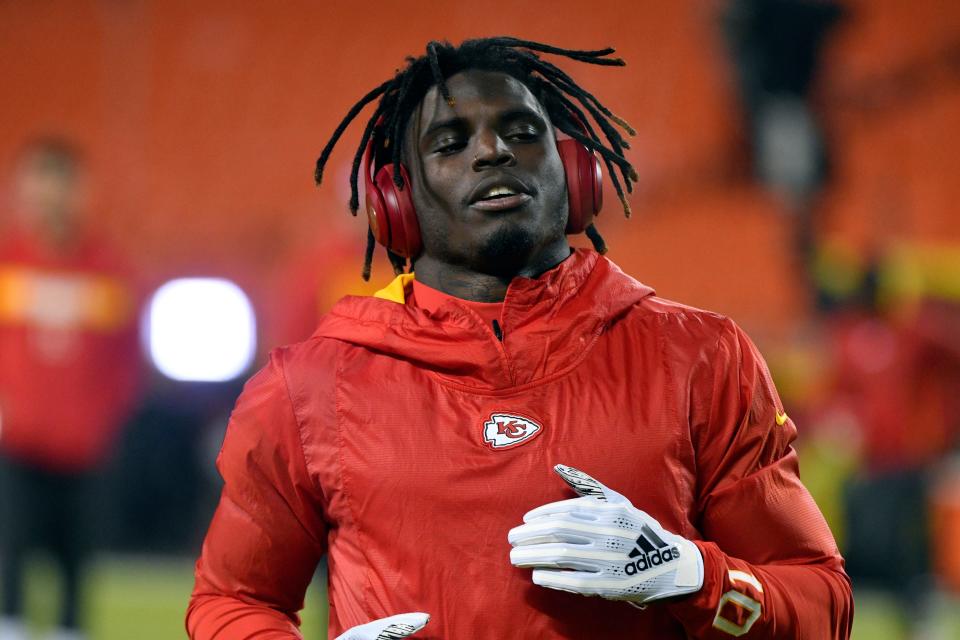
Police in Overland Park, Kansas, investigated Kansas City wide receiver Tyreek Hill and his then-girlfriend, Crystal Espinal, for child abuse after their 3-year-old son suffered a broken arm. Prosecutors said that while they believed a crime had been committed, they could not file charges because they couldn’t establish who hurt the boy.
After that decision was announced, TV station KCTV5 released audio clips from a conversation between Espinal and Hill recorded at the Dubai airport. In the audio, Hill denies hurting their son. The audio, which USA TODAY could not independently verify, also includes Hill telling Espinal that she needed “to be terrified of me, too, dumb (expletive).” The Chiefs suspended Hill following the release of the audio.
More: NFL will not punish Chiefs receiver Tyreek Hill over child abuse allegations after investigation
In the conversation, Hill also denied assaulting Espinal in 2014. He pleaded guilty to domestic violence and battery by strangulation in that case after allegedly choking and punching Espinal, who was pregnant at the time, and was kicked off the team at Oklahoma State.
The NFL announced in July that it would not suspend Hill because it could not determine he violated the personal conduct policy, and the Chiefs promptly reinstated him.
Kansas City signed Hill to a three-year, $54-million contract extension earlier this month.
This article originally appeared on USA TODAY: NFL domestic violence, Ray Rice: Tyreek Hill, Ezekiel Elliott, others

